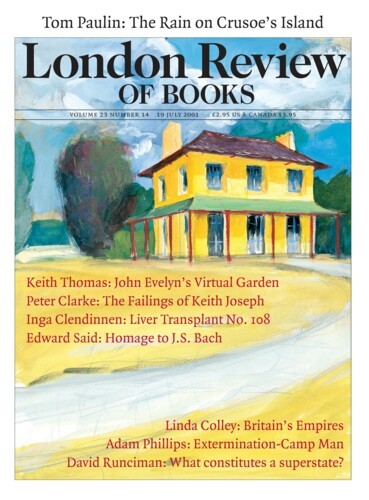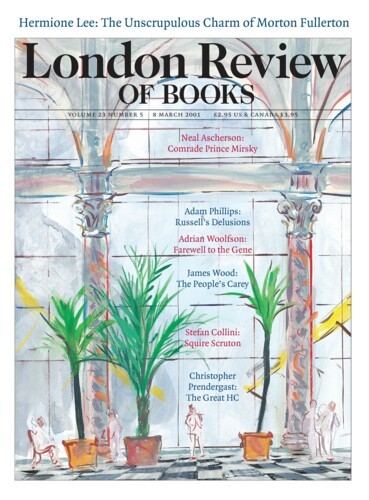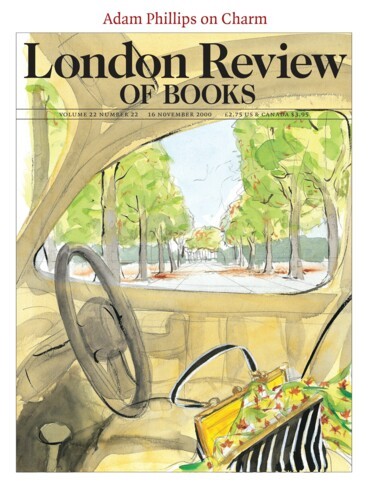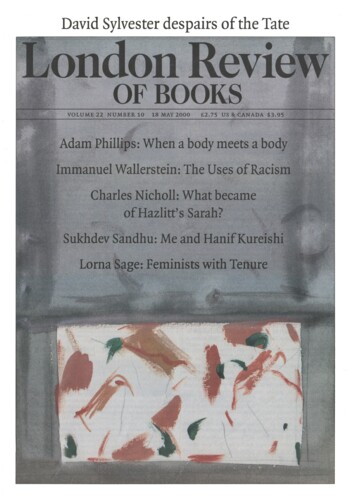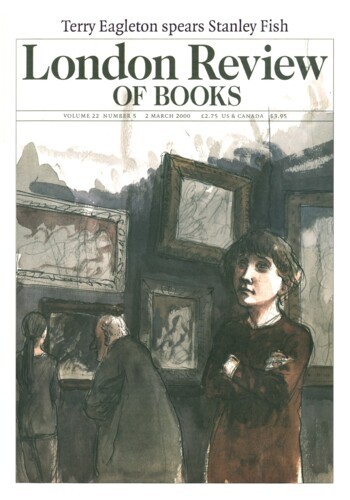Extenuating Circumstances: Paul Steinberg
Adam Phillips, 19 July 2001
In Primo Levi’s memoir of Auschwitz If this is a man – written, he says, not ‘to formulate new accusations … rather, to furnish documentation for a quiet study of certain aspects of the human mind’ – there is an account that is a kind of accusation of a man Levi calls Henri. There are several character sketches of his fellow inmates, but the two pages on...
